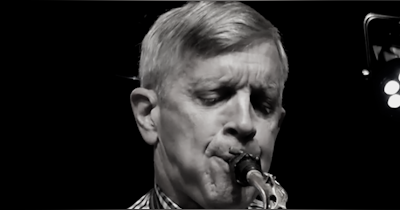Greetings JazzPianoSkills Fam!
This week I produced a new JazzPianoSkills Podcast Episode exploring the classic jazz standard Mr. P.C. by jazz legend John Coltrane. Mr. P.C. is a minor blues that has become a staple in the jazz repertoire. Mr. P.C.'s simple blues changes and melody make it the perfect tune for experimenting with (and developing) various essential jazz piano skills. And, that is exactly what I wanted to demonstrate and illuminate with this week's podcast episode.
Jazz Piano Skill #1
The very first step I take when learning a new jazz tune is to listen to several recordings of the tune. I do this first and foremost so that I can determine the musical form that the tune is using (AABA, ABAB, ABAC, etc.). Mr. P.C. is using a standard blues form which consists of twelve measures of music that continually repeat. Knowing the form of a piece of music helps immensely with learning the melody of the tune. By knowing the form I know the "framework" in which I am working when figuring out the melody.
Jazz Piano Skill #2
After I determine the form of a jazz tune I immediately begin learning the melody. Mr. P.C. has a very simple melody that I encourage all students to learn through their ears and not their eyes! In other words, listen to John Coltrane (and countless other jazz musicians) play Mr. P.C. and then go to the piano and poke it out - literally, poke it out with one finger if necessary! Do not worry about fingerings, do not worry about rhythm, phrasing, or articulation. Instead, worry about the NOTES, the MELODY! Once you have the notes in your ears and under your fingers then you can worry about fingerings, rhythm, phrasing, and articulation!
Jazz Piano Skill #3
Once you have the melody figured out it's time to turn our attention to the harmony - to the chord changes. Again, I encourage students to use their ears and not their eyes (in other words, do not grab the closest fake book you can get your hands on to find the chord changes). Mr. P.C. is a classic minor blues with only a few chords (perfect for testing your ears!). Of course, after you have made your best effort to discover, learn, and play the melody and chord changes through listening, it's always a good idea to check your work against a reliable lead sheet (I recommend a legitimate source like the Jamey Aebersold Jazz Books).
Jazz Piano Skill # 4
After constructing the basic architectural structure of the jazz tune (Form, Melody/Rhythm, and Harmony) it's time to begin developing your "treatment" of the tune. What tempo are you going to use? How about the groove (Swing, Bossa, Ballad, etc.)? What type of voicings are you going to use - traditional or contemporary left-hand shells, or both? How are you going to approach two-handed voicings? Big-time decisions indeed that ultimately determine your personal arrangement of the tune.
Jazz Piano Skill #5
Once you have your "treatment" of the tune figured out it's time to analyze the chord/scale relationships. In doing so, we discover what scales and arpeggios we can use to embellish the melody compositionally and improvisationally. Quite often you will find chord/scale relationships provide you with limited choices, if a choice at all, with regards to what scales you can use for improvising. Sometimes, you discover that one scale or pattern (i.e. Blues Scale) will satisfy the entire form of the jazz tune (as is the case with John Coltrane's Mr. P.C.
This is an excellent outline to use when learning any jazz standard and I followed this blueprint precisely as we set out to discover, learn, and play Mr. P.C. by John Coltrane. When listening (or re-listening) to the Podcast Episode see if you can identify these various jazz piano skills being addressed.
In closing, having a functional command of these Five Jazz Piano Skills (Form, Melody, Harmony, Voicings, Chord/Scale Relationships) provides you with a musical foundation necessary to understand music conceptually which ultimately determines your physical success.
Thanks for being a JazzPianoSkills Member. It is my pleasure to help you discover, learn, and play jazz piano!
Warm Regards,
Dr. Bob Lawrence
JazzPianoSkills



